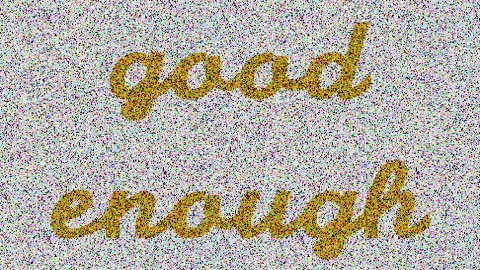Why I’m the type of editor who won’t settle
 I hate fluff. I also hate wimpiness, cliched platitudes, endless bloviation, and bad grammar.
I hate fluff. I also hate wimpiness, cliched platitudes, endless bloviation, and bad grammar.
This affects how I behave as an editor. It reduces the number of clients I have, and changes the way I approach content.
Let’s say you come to me with a potential editing job. I look at what needs to be done to turn what you have written into something worth publishing.
My reaction will be one of the following:
- If your writing (or your topic) is so uninteresting, unoriginal, or just plain bad that it’s unsalvageable, I will turn the job down. I don’t polish turds. While most editors will take whatever jobs come their way and just charge more if it’s harder, I’ll just walk away.
- If there’s a fundamental problem, I’ll tell you what it is and how you might fix it. I might tell you that your idea is weak, that you need to do more research, that you don’t know what you’re trying to say, or that your organization is poor. I’m not going to edit the sentences, because there’s no point in that. I’ll review it again after you’ve fixed the big problem.
- If it’s in pretty good shape, I’ll show you where it’s strong or weak. I might suggest a better beginning or ending. I’ll improve the writing too — delete sentences that don’t add anything, suggest sharper ways to describe ideas, point out mixed metaphors and passive voice, and generally show you how what you are writing could be doing the job better.
- If it’s in great shape, I’ll point out what little things are still wrong.
- If it’s perfect, I’ll say so and won’t charge you, since you don’t need an editor. (This has yet to happen so far.)
Most editors will tell you their job is to make writing better.
That’s not how I see it. “Better” is not my objective. “Great” is my objective.
If it’s not good enough to publish, I am going to keep pushing back on it until it’s ready.
Most writers (or at least most I am willing to work with) have the capability to say something great within them. Why shouldn’t they get there?
Why would I possibly have an elitist attitude like this? Why not polish crap and take a few bucks for it?
Because, even if you never see it, I imagine that my name is going to go on everything I touch. Even if you write it, it has to be good enough for me or I’m not happy.
Here’s what that means.
I might hurt your feelings and tell you something is unpublishable and fatally flawed. I try to be nice, but I’m pretty blunt.
On the other hand, if I tell you something is good, or excellent, or great, I really mean it. I don’t say that unless it really is.
This is why, after going through the process with me, people want to come back.
They learn something as they go along.
They get a result that’s great. They can see the difference and can see how they got there. They don’t get a participation trophy, they know they earned their way to success.
That feels good. And they want to do it again. They want to grow more, to say something important, to influence people with what they write.
I’m not as busy as other editors. But I respect my work — and the product — after every job. I’ll take that bargain.
“I might hurt your feelings”, you say.
But in the long term, you would hurt an author’s feelings much more by letting him publish a mediocre work with which his name will be attached forever.
You have the right approach.
Man, you’re making me want to work with you! I assume you don’t edit fiction?
You make good points.
Let’s not underestimate a good, eagle-eyed copyedit of one’s words as well, especially if you’re writing with such surety and confidence about the service you offer (see “plan” and misuse of “its” in your post).
I don’t think you were attempting to be ironic.
I do enjoy your posts. Thanks.
I’m an editor, not a copy editor. I do make mistakes. Thanks for catching them.